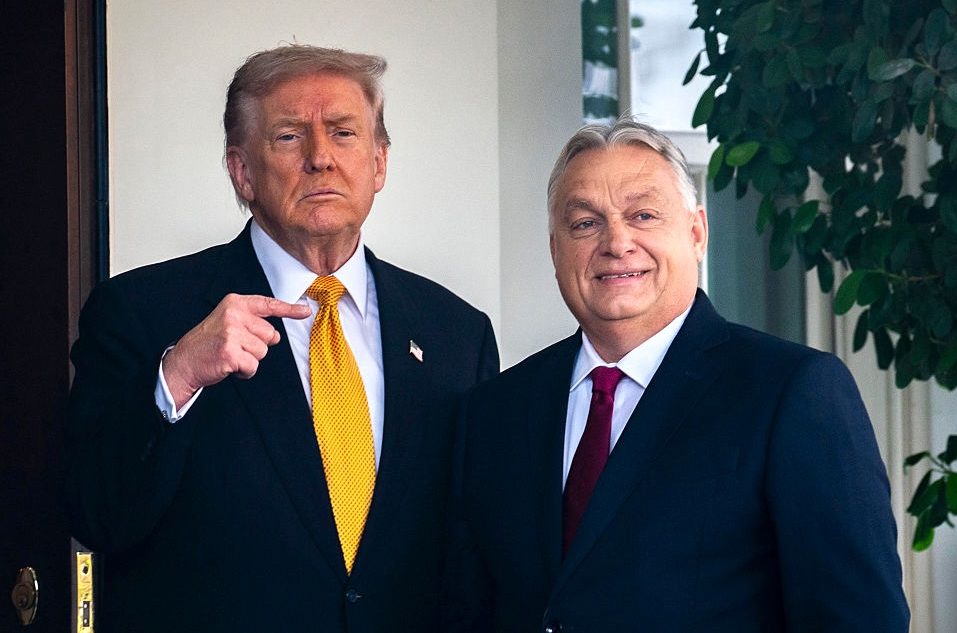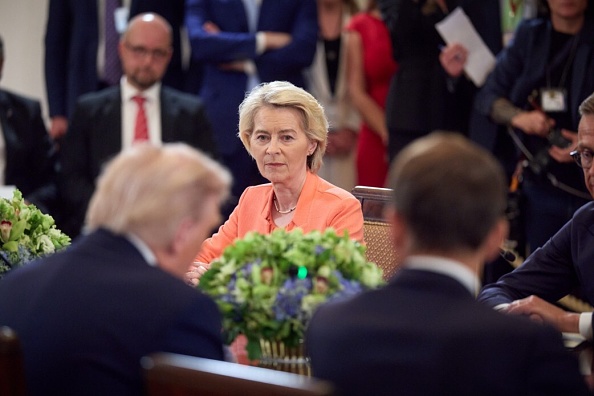All eyes on America as voters head to polls after campaign short on Europe references
European diplomats are concerned about a power vacuum that could follow unclear preliminary results.

As Europeans cautiously await the outcome of the United States elections on Tuesday (5 November), transatlantic issues have barely featured in the campaigns of the two main candidates, Democrat Kamala Harris and Republican Donald Trump.
More than 160 million US voters are expected to cast their ballots and the latest opinion polls show both candidates locked in a tight race for the White House.
Control of the US Congress will also be decided by Tuesday’s vote. Republicans are tipped to win a majority in the US Senate, while Democrats could potentially flip Republicans’ narrow majority in the US House of Representatives.
Harris has rallied Arab Americans in Michigan on Monday (4 November), pledging to do everything in her power to end the war in Gaza if elected.
Trump, who is gaining ground with Hispanic voters, especially men, over the past few campaign events, has said he “shouldn’t have left” the White House after he lost the 2020 US presidential election.
Low ‘Europe rate’
For Europeans, the election result could have significant implications – from US engagement in the wars in Ukraine and the Middle East to an increasing trade rivalry with China.
A second Trump term could also potentially mark a radical re-awakening from incumbent President Joe Biden’s old-school transatlanticism.
Yet, direct mentions of the transatlantic partnership have been scarce over the past months of the presidential campaign.
A presidential debate between both candidates in September offered few clues for Western partners of how they would end the wars in Ukraine and Gaza.
Both candidates have expressed starkly contrasting visions for Washington’s future role in Ukraine. Harris is likely to provide continuity to Biden’s administration. Trump, meanwhile, has suggested he may withdraw support for Kyiv, claiming he could stop the war in 24 hours.
They have been more specific about China, with either of them likely to push Europe into a more hawkish stance, but have shied away from disclosing specific policy plans. Trump indicated that a trade war with Beijing, which he started in his first term, could intensify in his second.
Next to lashing out at Europeans for not pulling their burden-sharing weight in NATO, Trump threatened that if he won the election, the EU would have to “pay a big price” for not buying enough American exports.
But with voter turnout being a key objective, “criticising Europe or praising the partnership with the EU is not really a key element of mobilisation for either side,” Garret Martin, co-director of the Transatlantic Policy Center at American University, told Euractiv.
“Trump has largely played the immigration card, trying to link the issue to all kinds of woes affecting American society; Harris has led a campaign much more focused on freedom, abortion, and sort of the threat post-democracy by Trump,” Martin said.
“That’s why we have seen very few references to Europe or the EU or foreign policy more generally,” he said.
When there have been discussions about foreign policy specifically, “for Harris, it has been a much more defensive move, trying to shore up her party base, especially over a divisive issue like the conflict in Gaza,” Martin added.
Uncertain ‘day after’
Seven swing states—Michigan, Pennsylvania, Wisconsin, Arizona, Georgia, Nevada, and North Carolina—are likely to be decisive for the election’s outcome, but recent polls indicate they are currently too close to call, so the result might not come quickly.
In 2020, it took several days before Biden’s election was called, with legal battles lasting until 6 January 2021, when an attempt to stop the US Congress from formalising his victory was made.
European diplomats across the board fear the period after the polls, with many of them concerned about the power vacuum that could follow unclear preliminary results.
Asked by Euractiv about expectations for the ‘day after’ and whether there are doubts about a smooth transition of power, Martin said it would highly depend on how close the election will be.
“We certainly can’t discount a drawn-out period of tension, maybe even chaos, and hopefully not violence,” Martin said.
“One element that we know is that there are already plans on the part of the Trump campaign to engage in extensive litigation to try and contest all kinds of ballots, to try and affect any recount,” he added.
Democrats over the past week have said they have plans should Trump try to prematurely claim victory or refuse to admit defeat.
Hundreds of US National Guard troops have been activated or put on standby for Tuesday’s election day as US intelligence agencies have repeatedly warned of potential civil unrest, Defense One reported.
[Edited by Alice Taylor-Braçe]









